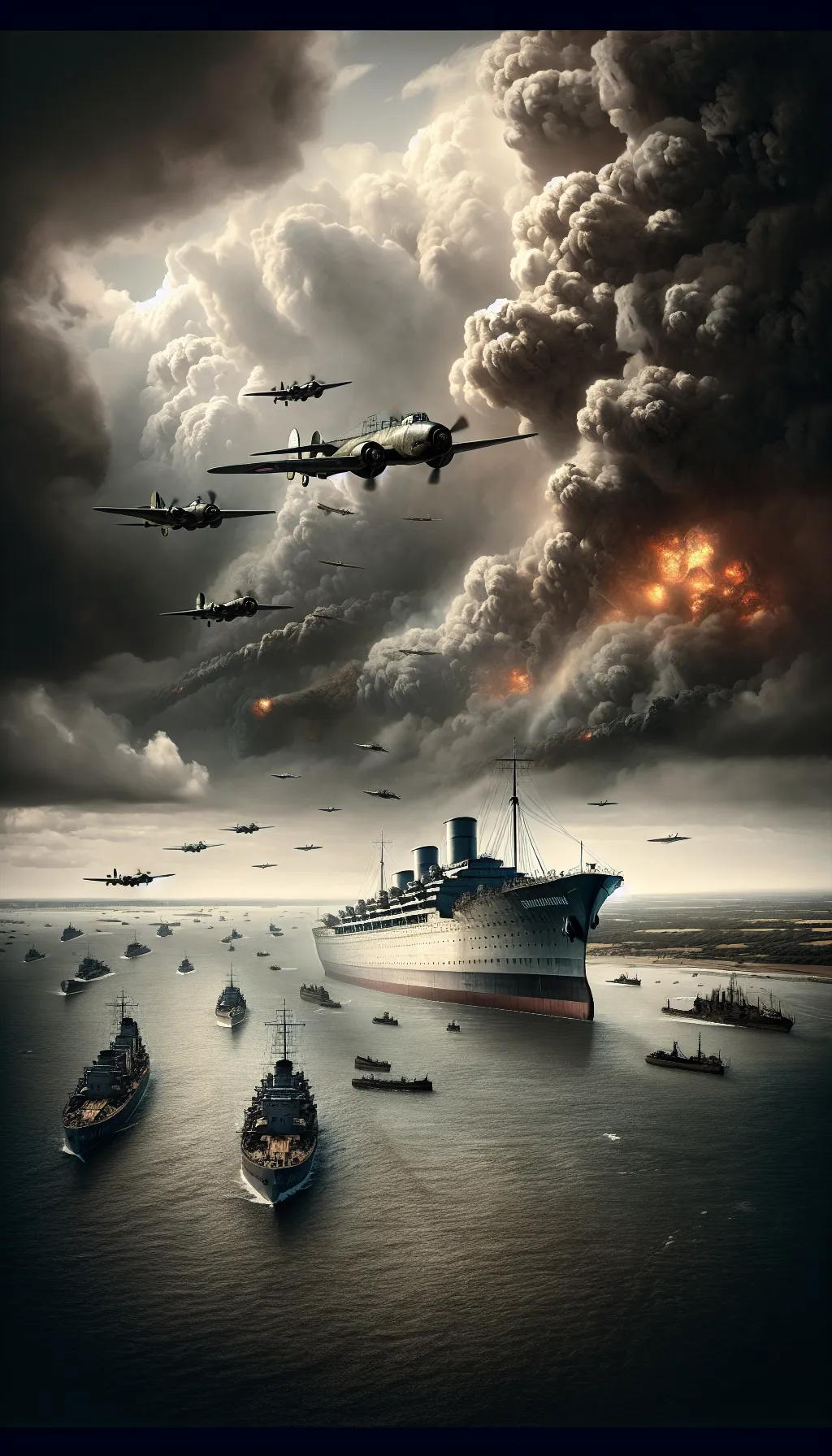France – The Tragedy of RMS Lancastria – June 17, 1940
TLDR;
- Event: On June 17, 1940, the RMS Lancastria, a British troopship, was bombed and sunk by the Luftwaffe during Operation Aerial, the evacuation of Allied forces from France.
- Casualties: The sinking resulted in an estimated 3,000 to 5,800 deaths, marking it as one of the worst maritime disasters in British history.
- Aftermath: The British government imposed a news blackout to prevent panic and protect morale, leaving the tragedy largely unrecognized for years.
- Legacy: The Lancastria’s sinking highlights the brutal realities of war and the often-overlooked sacrifices of those caught in its path.
–
Story
The sky over Saint-Nazaire was a canvas of chaos on June 17, 1940. As German bombers roared overhead, the RMS Lancastria, a British troopship, lay vulnerable in the waters below. Packed with thousands of soldiers, civilians, and crew, the ship was a beacon of hope for those fleeing the advancing German forces. But in a matter of hours, it would become a watery grave.

The fall of France was imminent, and the British Expeditionary Force was in desperate retreat. Operation Aerial was underway, a frantic evacuation of British and Allied forces from the ports of western France. The Lancastria, a converted luxury liner, was tasked with carrying as many evacuees as possible to safety across the Channel.
As the ship lay anchored, overloaded with 3–4 times its intended capacity, the Luftwaffe struck. Bombs rained down, and within minutes, the Lancastria was hit multiple times. Chaos erupted as the ship began to list and sink rapidly, disappearing beneath the waves in about 20 minutes. Lifeboats were scarce, and the sea became a scene of horror as thousands fought for survival amidst drowning, hypothermia, and being crushed in the overcrowded water.
The sinking of the Lancastria claimed nearly 3,500 lives, with estimates ranging from 3,000 to 5,800, making it one of the worst wartime sinkings and the worst British maritime loss in WWII. The tragedy was compounded by a government-imposed news blackout, intended not only to protect national morale but also to avoid giving the Germans propaganda value and to prevent panic among future evacuees. Winston Churchill reportedly ordered the suppression, saying, ‘The newspapers have got quite enough disaster for today at least.’ For many, the loss remained a silent scar, a story untold for years.
The Lancastria’s sinking is a somber reminder of the war’s indiscriminate brutality and the countless untold stories of sacrifice and loss.
–
| Would a different decision by the British command have changed the fate of the Lancastria? |